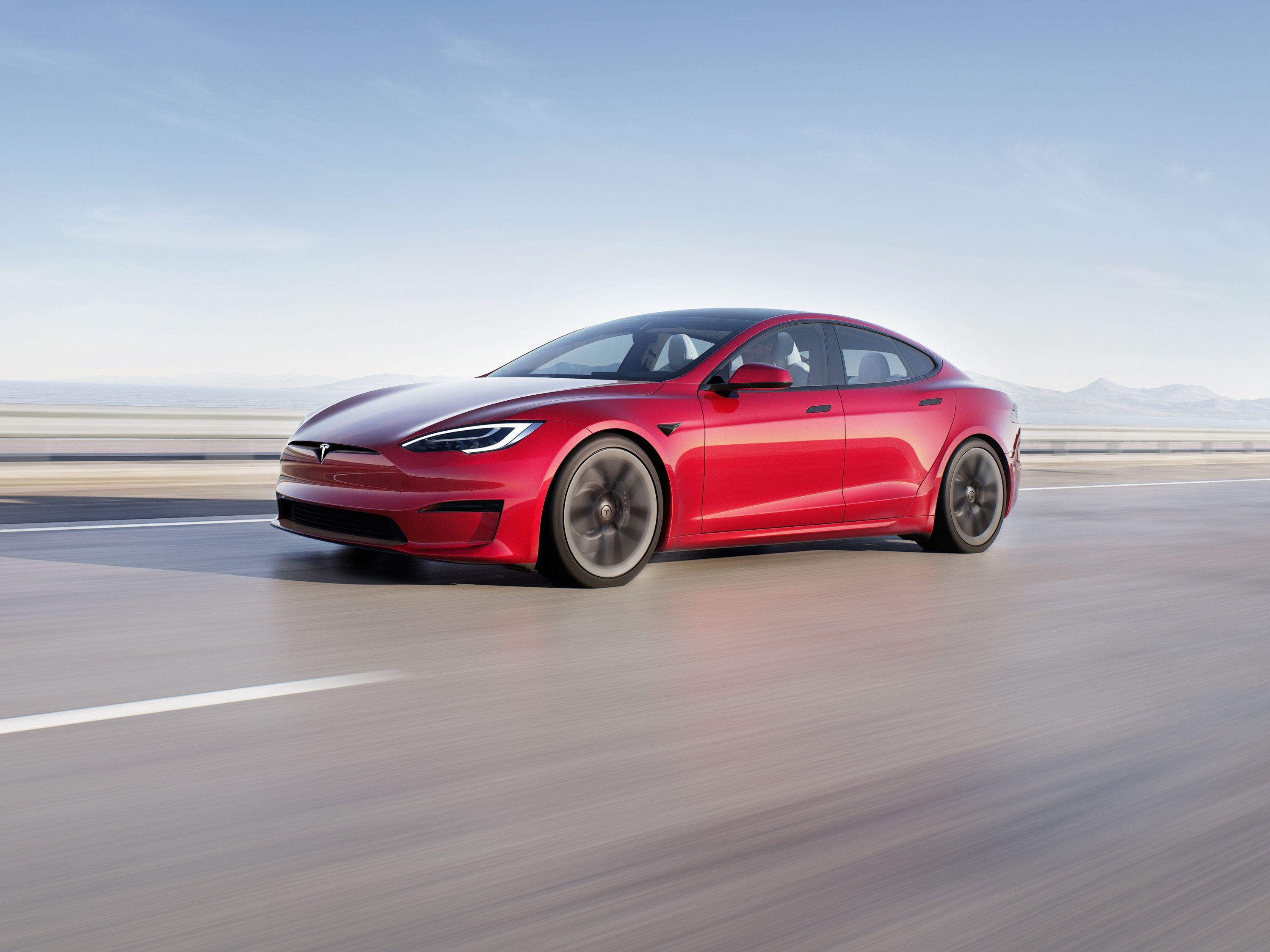
Even though it's been in production for 10 years, the Tesla Model S is still a segment leader in many aspects. If you spring for the $135,990 Model S Plaid, you'll be rewarded with one of the fastest accelerating vehicles in the world, all wrapped up in a practical and usable package. But, despite the premium pricing, Tesla has often been criticized for its less-than-premium interior finishes and build quality.
There's more evidence of this now, as several owners have reported premature wear on their steering yokes. One owner posted a picture of his peeling steering wheel to Twitter, expressing shock at the poor quality. "Only 12,000 miles on my Plaid Model S and this is already happening?" he tweeted, while others have reported the same occurrence with as little as 4,000 miles on the clock.
This doesn't appear to be an isolated incident. Another Twitter user, known as The Kilowatts, also shared his experience. The steering wheel trim on his 2021 Model S started disintegrating after 20,000 miles. In Tesla's defense, the owner notes it was used as a rental on Turo and, as we know, rental cars lead particularly hard lives. Then again, far cheaper cars are pressed into fleet duty and don't suffer similar quality issues.
Seeing this, another Twitter user replied, "I've seen quite a few Model S/X owners complaining about their yoke peeling. Tesla is aware of this and will replace yours under warranty, no questions asked. Tesla will come to you via mobile service, of course." This is yet to be confirmed, but we've reached out to Tesla regarding the matter and will update the article accordingly.
In a bid to become more environmentally friendly, Tesla stopped using genuine leather and started using a synthetic hide known as vegan leather. One Model 3 owner covered a mere 6,500 miles before his seats started bubbling. Astonishingly, Tesla quoted him $1,880 to repair the issue, which it said stems from the use of lotions, sunscreen, hair sprays, or gels."
The main benefit of synthetic leather (in most instances, vinyl) is that it's supposed to be more hard-wearing - ask anyone who's owned a Benz with MB-Tex upholstery. However, this is clearly not the case here. What's more, it's bizarre that Tesla would attribute the accelerated wear to things such as lotion and sunscreen. These are items other car owners use every day without damaging their trim.
We should note, however, that this response was given to the aforementioned Model 3 owner, not the Model S owners that are the subject of this article. It's safe to assume the automaker trims its steering wheels in the same synthetic leather.
Regardless of the chosen materials, this shouldn't be happening on a vehicle with a six-figure price tag. Tesla's battle with quality control is well-documented and is one of the biggest issues currently facing the company.
After all, it builds great vehicles that have myriad plus points, as evidenced by strong sales. However, if you're pricing vehicles to compete with the likes of Audi and BMW, you had best be able to offer comparable build quality and solidity. Recently, a Tesla fan was disappointed when his new Model Y was delivered with several flaws and defects.
Hopefully, Tesla can gain control over its quality woes. Otherwise, it's only a matter of time before people abandon ship for other rivals. Many may lament the Lucid Air's price premium over the Model S, but thus far - and it's still early days for Lucid - we haven't heard of problems to this extent.



